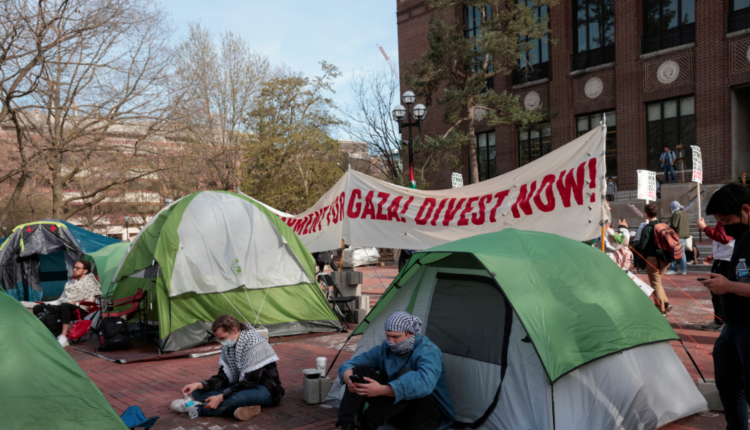Michigan Attorney General (AG) Dana Nessel released a statement announcing that her office filed charges against 11 pro-Palestinian protesters at the University of Michigan (UMich) in the 15th District Court in Washtenaw County.
Nine of the charges, filed in the Washtenaw County 15th District Court, stem from how the defendants allegedly responded when U-M shut down the tent-filled encampment on May 21, nearly one month after it began April 22.
Of those 11, seven are charged with trespassing and a count of resisting or obstructing a police office, a felony with a maximum two-year prison term. Nessel’s office said the demonstrators “are alleged to have attempted to halt or push back the police by making direct contact with the officers’ bodies or physically obstruct an arrest.”
Nessel’s office issued a statement saying that they were charging 11 out of the “over 35 protesters” who were investigated.
The AG has also stated that the protesters were involved in the months-long protest encampment set up in the U-M Diag last semester. Nessel’s office clarified that they are currently not prosecuting protesters involved in disrupting the Honors Convocation on March 25 inside Hill Auditorium or those who interacted with police outside the U-M Museum of Art on May 3. The investigation into protesters placing fake corpses and bloody toys in front of eight regents’ homes on May 15 continues.
In her statement, Nessel said:
The right to free speech and assembly is fundamental, and my office fully supports every citizen’s right to free speech under the First Amendment… However, violent and criminal behavior, or acts that trample on another’s rights, cannot be tolerated. I hope today’s charges are a reminder to everyone who chooses to assemble, regardless of the cause, that the First Amendment does not provide a cover for illegal activity.
On August 28, police violently arrested four protesters at a peaceful “die-in” protest on the Diag for impeding foot traffic. These arrests came within days of the University administration’s announcement of its revised conduct policies, which allow the “university” to file a complaint against a student with few restrictions.
Previously, all complaints about misconduct had to come from staff members, faculty or students.
The change in policy at U-M mirrors similar actions taken at other colleges and universities, including Columbia University which banned encampments, and Rutgers University where students wishing to protest need to submit a “Free Expression Notification Form.” Students who participated in protests at George Washington University last academic year started the semester facing potential criminal charges.
In its own statement, the ACLU noted Nessel’s act of announcing the charges “run the serious risk of chilling future speech and protest” on the campuses. The ACLU’s statement continues, laying particular significance on the fact that the state government is bringing trespassing misdemeanor charges against protesters, charges which, as the AHRC pointed out are largely dealt with by university and local authorities:
The charges by the MIOAG represent a pattern of excessive response by law enforcement to the campus protests. As we noted when the campus encampment at the University of Michigan was dismantled in May, the use of militarized tactics by the police, including chemical munitions, was grossly disproportionate to what had been a peaceful protest.
U.S. Rep. Rashida Tlaib of Detroit criticized the charging decision by Nessel, also a Democrat.
“This shameful attack on students’ rights will fail,” Tlaib, who has criticized Israel’s actions during the ongoing war, wrote on social media. “Follow the Constitution.”


Comments are closed, but trackbacks and pingbacks are open.